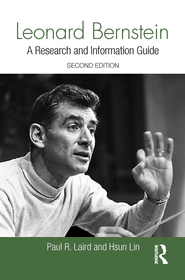
What Works for Whom?, Second Edition
A Critical Review of Psychotherapy Research
-
20% KEDVEZMÉNY?
- A kedvezmény csak az 'Értesítés a kedvenc témákról' hírlevelünk címzettjeinek rendeléseire érvényes.
- Kiadói listaár GBP 66.99
-
32 004 Ft (30 480 Ft + 5% áfa)
Az ár azért becsült, mert a rendelés pillanatában nem lehet pontosan tudni, hogy a beérkezéskor milyen lesz a forint árfolyama az adott termék eredeti devizájához képest. Ha a forint romlana, kissé többet, ha javulna, kissé kevesebbet kell majd fizetnie.
- Kedvezmény(ek) 20% (cc. 6 401 Ft off)
- Kedvezményes ár 25 603 Ft (24 384 Ft + 5% áfa)
Iratkozzon fel most és részesüljön kedvezőbb árainkból!
Feliratkozom
32 004 Ft

Beszerezhetőség
Becsült beszerzési idő: A Prosperónál jelenleg nincsen raktáron, de a kiadónál igen. Beszerzés kb. 3-5 hét..
A Prosperónál jelenleg nincsen raktáron.
Why don't you give exact delivery time?
A beszerzés időigényét az eddigi tapasztalatokra alapozva adjuk meg. Azért becsült, mert a terméket külföldről hozzuk be, így a kiadó kiszolgálásának pillanatnyi gyorsaságától is függ. A megadottnál gyorsabb és lassabb szállítás is elképzelhető, de mindent megteszünk, hogy Ön a lehető leghamarabb jusson hozzá a termékhez.
A termék adatai:
- Kiadás sorszáma 2, New edition
- Kiadó Guilford Press
- Megjelenés dátuma 2006. január 12.
- ISBN 9781593852726
- Kötéstípus Puhakötés
- Terjedelem661 oldal
- Méret 234x156 mm
- Súly 1040 g
- Nyelv angol 0
Kategóriák
Rövid leírás:
Hosszú leírás:
"The best-titled book in the psychotherapy field returns for a triumphant second edition. The original authors have updated their analysis of the literature using an approach that is calm in tone, liberal in outlook, and judicious in evaluation. They are passionate about evidence-based practice and the proper use of clinical judgment, and they anticipate an evolution of existing psychotherapies in ways that respect necessary complexity and creativity. As experienced researchers and clinicians, they clearly describe the limitations as well as the strengths of the different research methodologies and are opposed to privileging one strategy over another. Without doubt, this book is essential reading for all psychotherapy researchers, trainers, practitioners, and students."--Mark Aveline, MD, FRCPsych, Institute of Lifelong Learning, University of Leicester, UK: and President (2003-2004), Society for Psychotherapy Research
"In this era of evidence-based treatment, researchers are proud of their 'significant differences,' and clinicians often find research based on the mean score to be wanting in the individual case. The Roth and Fonagy volume, now in its updated second edition, provides a clinically sophisticated guide to utilizing the existing research with judicious sensitivity to the client who does not fit neatly into oversimplified categories of diagnosis and treatment brands. Simply put, this is the best book on the topic. Researchers will find their work put into a broader context, and clinicians will relish a thoughtful guide through the complicated tasks of assessment and treatment planning."--John F. Clarkin, PhD, Department of Psychiatry, Weill-Cornell Medical College
"Given that 'What works for whom?' is the perennial question asked by psychotherapy trainees, this superb book should be required reading in any psychotherapy course or seminar. Roth and Fonagy underscore not only the importance of understanding the answer to this question, but also the importance of asking the question in the first place."--Wendy K. Silverman, PhD, Department of Psychology, Florida International University
"A worthy successor and expansion of the first edition. Readers will find comprehensive reviews of empirical outcome studies on psychosocial treatments and selected medications found helpful in working with clients with specific disorders. In addition, the book discusses methodological considerations in designing and evaluating psychotherapy outcome studies, offering a masterful exposition of this complex topic. This is a clinically useful resource that would make an excellent text for graduate students in the mental health fields. I highly recommend it."--Bruce A. Thyer, PhD, LCSW, School of Social Work, Florida State University
Tartalomjegyzék:
1. Defining the Psychotherapies
2. Research and Practice: Methodological Considerations and Their Influence on This Review
3. Psychotherapy Research, Health Policy, and Service Provision, Glenys Parry, Anthony Roth,
and Peter Fonagy
4. Depression
5. Bipolar Disorder
6. Anxiety Disorders I: Specific Phobia, Social Phobia, Generalized Anxiety Disorder, and Panic Disorder with and without Agoraphobia
7. Anxiety Disorders II: Obsessive-Compulsive Disorder
8. Posttraumatic Stress Disorder
9. Eating Disorders: Anorexia Nervosa, Bulimia Nervosa, and Binge-Eating Disorder
10. Schizophrenia
11. Personality Disorders
12. Substance Abuse: Alcohol, Cocaine, and Opiate Dependence and Abuse
13. Sexual Dysfunctions
14. The Psychological Treatment of Child and Adolescent Psychiatric Disorders, Mary Target
and Peter Fonagy
15. Effectiveness of Psychological Interventions with Older People, Robert Woods
and Anthony Roth
16. The Contributions of Therapists and Patients to Outcome
17. Conclusions and Implications
Appendix I. Converting Effect Sizes to Percentiles
Appendix II. An Illustration of Commonly Used Clinically Intuitive Ways of Representing the Outcome of Trials
Appendix III. Contrast between Prevalence Rates from Different Epidemiological Surveys


Multisensory Design of Retail Environments: Vision, Sound, and Scent
13 309 Ft
11 712 Ft

Camus and the Challenge of Political Thought: Between Despair and Hope
22 184 Ft
19 522 Ft










